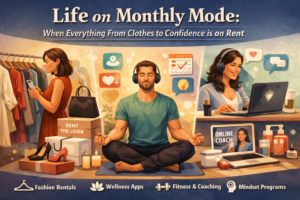How Couple Dieticians Are Strengthening Modern Marriages

When we think of improving our relationships, we often imagine heart-to-heart talks, therapy sessions, or romantic getaways. But a surprising new trend is shifting that perspective: couples are turning to dieticians—not just for weight loss or meal planning, but to strengthen their emotional and physical bond. It raises an intriguing question—are couple dieticians the new marriage therapists?

The Link Between Food and Feelings
Food plays a bigger role in relationships than we realize. What we eat affects our mood, energy, hormones, sleep, and stress—all of which directly influence how we communicate, argue, and connect with our partners.
For example, chronic sugar crashes or poor gut health can lead to irritability, fatigue, and even depression. If both partners are experiencing this, tension builds. On the flip side, when couples eat balanced, nutritious meals together, they’re more likely to feel good physically and emotionally—making it easier to resolve conflicts and enjoy each other’s company.

Dieticians Are Now Coaching More Than Just Calories
Traditionally, dieticians focused on individual wellness. But now, many are offering couple-based consultations to help partners align their eating habits and health goals. Here’s what they do:
Meal Planning for Two: Helping couples find middle ground between food preferences, allergies, or lifestyle choices (like one being vegan and the other a meat lover).
Nutrition for Intimacy: Teaching how certain foods can boost libido, fertility, and hormonal balance.
Improving Communication Through Food: Guiding couples to cook and eat together, turning mealtime into bonding time.
Joint Health Goals: Setting shared fitness or wellness targets, which creates a sense of teamwork.
This approach often leads to couples understanding each other on a deeper level—just like in traditional therapy.
Why It’s Working
Couples who change their lifestyle together report feeling more connected. The act of supporting each other through diet changes—whether it’s cutting down sugar, managing PCOS, or starting intermittent fasting—can bring a sense of unity. They become each other’s accountability partner, cheerleader, and even chef.
Also, nutritionists help identify how certain foods might be causing emotional strain. For instance, if one partner has gut issues leading to brain fog or mood swings, it can affect their ability to show up emotionally in the relationship. Addressing this through diet is a powerful, natural fix.
The Modern Couple’s New Toolkit
Today’s couples are seeking holistic wellness—mentally, physically, and emotionally. That means going beyond the therapist’s couch. They’re booking sessions with couple dieticians, signing up for joint wellness programs, and even attending cooking therapy workshops.
While nutritionists don’t replace traditional therapists, they are quickly becoming a part of the relationship wellness toolkit. When food is medicine, and relationships are built on habits, it only makes sense.
So, are couple dieticians the new marriage therapists? Not entirely—but they’re certainly playing a role in healing and strengthening modern relationships. After all, the way to someone’s heart just might be through a shared meal plan.







